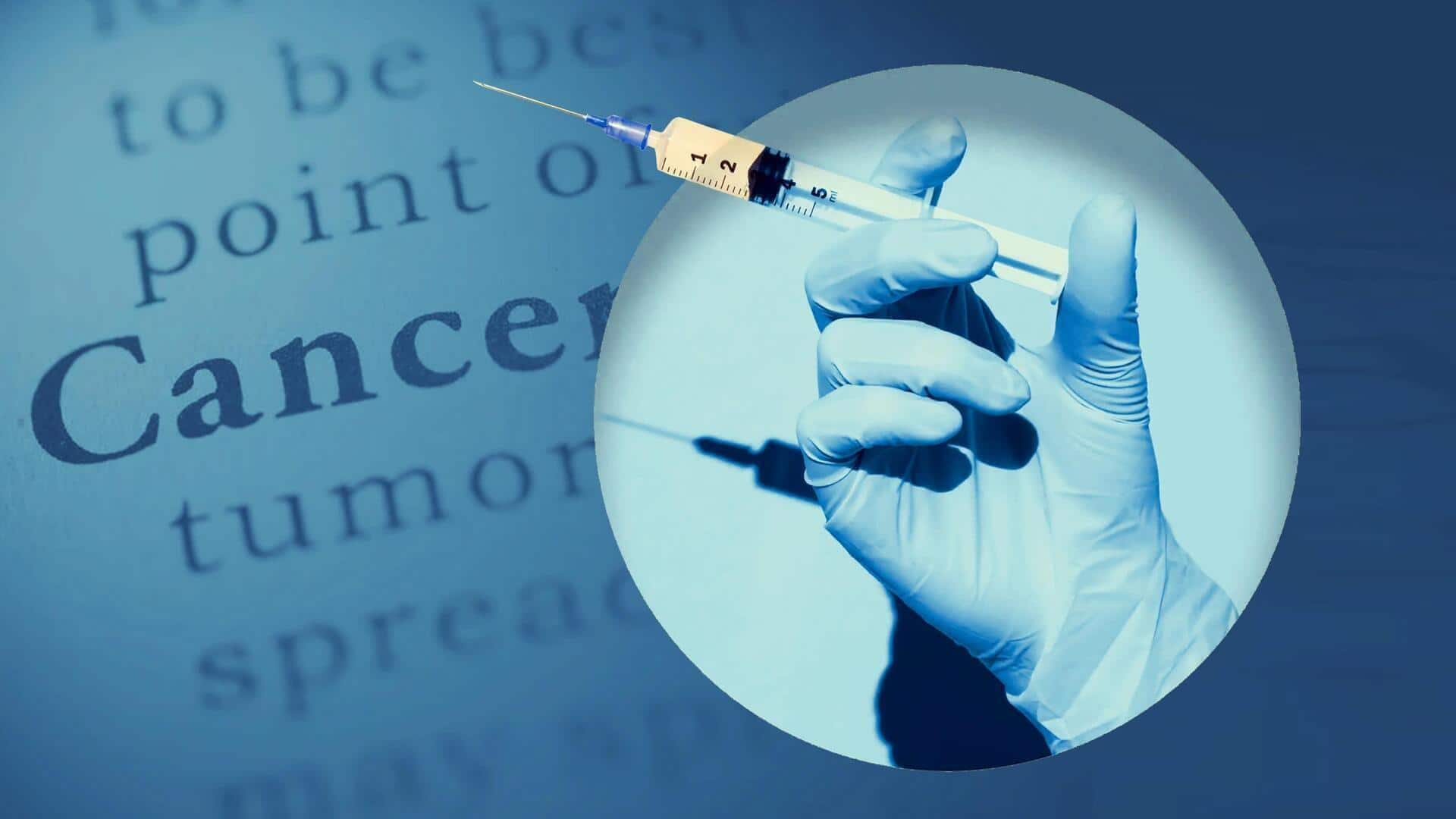
Russia to test AI-designed cancer vaccine on humans this year
What's the story
Russia's Gamaleya National Research Center of Epidemiology and Microbiology, the team behind the Sputnik V COVID-19 vaccine, has announced plans to begin human clinical trials for a revolutionary personalized mRNA-based melanoma vaccine. The trials are expected to start in September-October 2025. The innovative treatment is tailored to individual patients' tumor genetics using artificial intelligence (AI) and aims to stimulate the immune system into targeting and destroying cancer cells.
Production timeline
How the vaccine is developed
The development of this groundbreaking cancer vaccine involves a complex process of creating a personalized mRNA blueprint from each patient's unique tumor mutations. Advanced AI algorithms are used to analyze the genetic data of the tumor and create a molecular template, which is then produced at Gamaleya's production facilities. The entire cycle, from tumor sequencing to vaccine production, can be completed in about one week thanks to AI-assisted mathematical modeling and neural network computing.
Trial sites
Vaccine has shown promising results in preclinical animal studies
The personalized cancer vaccine has shown promising results in preclinical animal studies, demonstrating its ability to inhibit tumor growth and metastasis. The upcoming Phase I clinical trials will be conducted at two of Russia's leading oncology centers: the Hertsen Research Institute and the N.N. Blokhin National Medical Research Center of Oncology in Moscow. This tailored vaccine is part of a broader Russian effort to improve cancer treatment across various hard-to-treat types, including pancreatic, kidney, and non-small-cell lung cancers.
Funding details
Vaccine will be provided free of charge to Russian citizens
The Russian Ministry of Health has placed the vaccine development and approval under a new, specialized regulatory process recognizing its individualized nature, which is fundamentally different from traditional drug registration. The state plans to provide this cancer vaccine free of charge to Russian citizens, with an estimated production cost of around 300,000 rubles (approximately $2,869) per dose covered by government funding. About four million Russians live with cancer and some 625,000 new cases are diagnosed annually.